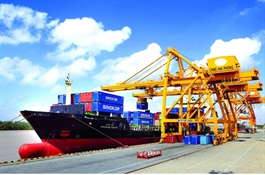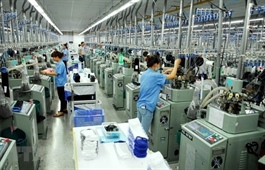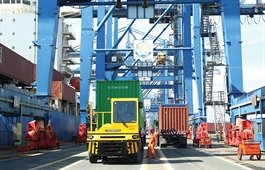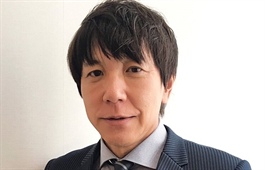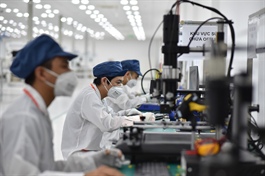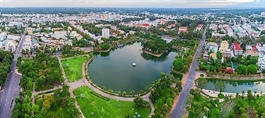High-tech success resting on investment
High-tech success resting on investment
Vietnam is a fertile ground for high-tech development, for both domestic and international tech companies. The population is young, well-educated, and digitally-literate. Smartphone and internet penetration rates, for instance, outperform many other countries around the region and the wider world.

Nguyen Hai Minh - Vice chairman, European Chamber of Commerce in Vietnam
|
For this reason, many European enterprises – including those in EuroCham’s active Digital Sector Committee – have decided to base their operations here to take advantage of Vietnam’s infrastructure, labour force, and future growth potential.
The EU-Vietnam Free Trade Agreement (EVFTA) should increase Vietnam’s potential in the high-tech market. This landmark agreement will further liberalise the country’s service sector and open up new industries to European investment and innovation. This, in turn, will increase not just capital flows but also – perhaps more importantly – international experience and knowledge-transfer from high-tech European companies to their partners in Vietnam.
In the long run, EU companies will also engage more in shifting their supply chains to Vietnam which could result in more EU production in the country, using EU high technologies and standards.
With all these advantages, Vietnam has a huge potential in the high-tech sector, which could be one of the country’s growth markets in the future; one which will be boosted by the government’s digitalisation agenda and its investment in new and upgraded telecommunications infrastructure.
But the success of high-tech industries will not just happen through government action alone. Investments from the private sector will also have an important role – and to facilitate and encourage that trend, tax incentives have been a key.
According to tax regulations, income tax incentives for high-tech companies include four years of tax exemption, nine years of a 50-per-cent tax reduction, and a 10-per-cent tax rate for 15 years. The companies have to meet certain criteria to qualify as high-tech enterprises as set out in the Law on High Technology, the Law on Investment, and also some specific minimum thresholds under a decision of the prime minister such as revenue from such products and total spending and labour involved for research and development (R&D).
The prime minister has just signed Decision No.10/2021/QD-TTg, dated March 16 that replaces an earlier decision on guiding criteria for high-tech enterprises. In which, companies have to meet the following conditions: (i) Revenue from hi-tech products must be at least 70 per cent of total annual net revenue; (ii) The ratio of total spending for R&D (including certain types of expenses) over a total net revenue minus input value of materials and components must be at least 0.5 per cent for companies with more than VND6 trillion ($250 million) and more than 3,000 labourers, 1 per cent for companies with more than VND100 billion ($4.2 million) in capital and more than 200 labourers, and 2 per cent for smaller companies; (iii) The ratios of R&D labourers over total labourers are 1 per cent, 2.5 per cent, and 5 per cent for the above-mentioned types of company, respectively.
In general, the criteria set out in Decision 10 sound similar to the previous decision. However, they include more detailed guidelines to avoid misunderstanding and arguments between authorities and firms.
For instance, the R&D spending includes a depreciation of infrastructure, fixed assets; regular spending for R&D; training, support in training for R&D labourers of companies, science and technology organisations, training organisations in Vietnam; royalty, transfer of ownership and usage rights of intellectual property for R&D; and many more. This is a significant development of Decision 10 that could help clarify the type of expenses that can be utilised for defining R&D spending.
Nevertheless, there is still one point that needs further clarification – the ratio of total R&D spending over “total net revenue minus input value of materials and components”. The decision was not clear on whether the input value only covers the materials and components that are recorded in cost of sales in the year.
In short, Decree 10 should encourage companies to invest in R&D and in the development of high-tech products. In order to unlock the full potential of the country’s high-tech sector, however, Vietnam should leverage the experience of its international partners.
|
Van Duc Phu - Senior expert, Investment Promotion Centre for North Vietnam
South Korea has made a lot of achievements in developing its semiconductor industry, and it represents a successful example for reliable destinations in Vietnam. Last week, the South Korean government approved a plan to develop the semiconductor Cluster Construction in Yongin, in the south of Seoul. This will be home to more than 50 semiconductor material, component, and equipment manufacturers and suppliers. In addition, SK Innovation has scheduled to invest nearly $1 billion to build third and fourth battery separator plants in an existing complex in Poland. With its expectations to develop in foreign markets in ASEAN countries, Vietnam is being selected to expand oncoming chains for semiconductors, which are an essential component at the heart of economic growth, security, and technological innovation. In recent years, the local market has been growing fast thanks to strong consumption of electronic equipment, smartphones, TVs, tablets, and so on. These high-tech devices have boosted foreign direct investment (FDI) and contributed to bringing amazing and prompt messages to investors over the world. South Korean investors like SK, LG, and Samsung have invested greatly in Vietnam, and they are going to continue expanding their investment and need more suppliers; while Vietnam needs sustainable supply chains for all-sided development including design, manufacturing, packaging, and testing. Vietnamese experts report that the industry needs paying more attention to. Analysis shows that Vietnam has a huge potential market for the integrated circuit market. It is high time we took timely actions for this development and it will surely be in accordance with Industry 4.0 that Vietnam has been applying with the government’s determination. One of the challenges for the semiconductor industry in Vietnam is the lack of senior personnel and skilled engineers. But with its population of nearly 100 million and a very young demography, it is important for Vietnam to take advantages of this huge potential. To lure more FDI for the semiconductor industry, we should have appropriate infrastructure to meet the demand of investors as they usually have difficulties considering favourable options for investment. It seems that many major Vietnamese enterprises have invested in their industrial zones. Besides that, industrial clusters are being constructed to satisfy foreign investors. If the Vietnamese government and the business community link together, ensuring sustainable development and attracting global corporations, the semiconductor industry can be promoted more successfully and become a main driver and trend. |








